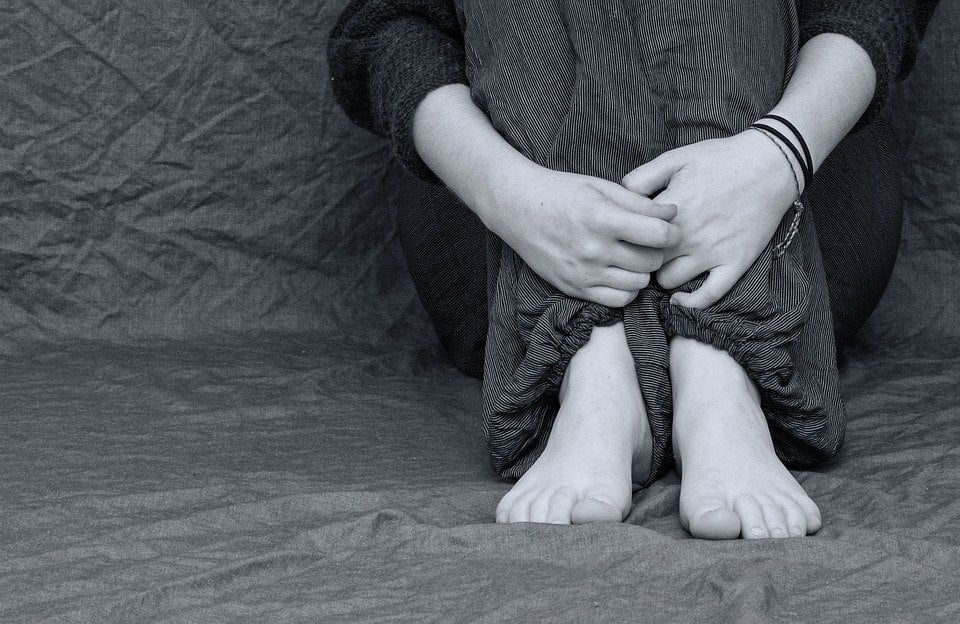Summary: Restless leg syndrome (RLS) triples the risk of suicide and self-harm in those with the condition.
Source: Penn State
Restless legs syndrome was associated with a nearly tripled risk of suicide and self-harm in a new study led by Penn State researchers.
Using Big Data, the researchers found that people with restless legs syndrome (RLS) had a 2.7- fold higher risk of suicide or self-harm, even when the researchers controlled for such conditions as depression, insomnia, diabetes and others.
The study was published today (Aug. 23) in the Journal of the American Medical Association (JAMA) Network Open.
Xiang Gao, associate professor of nutritional sciences and director of the Nutritional Epidemiology Lab at Penn State, said that as suicide rates rise in the United States, the findings suggest that physicians should pay special attention to the mental health of patients with RLS.
“Our study suggests that restless legs syndrome isn’t just connected to physical conditions, but to mental health, as well,” Gao said. “And, with RLS being under-diagnosed and suicide rates rising, this connection is going to be more and more important. Clinicians may want to be careful when they’re screening patients both for RLS and suicide risk.”
According to the researchers, RLS affects approximately five percent of the U.S. population, causing an uncomfortable feeling in a person’s legs resulting in the urge to move them, often during the night. While the exact cause of RLS is unknown, previous research has found an association between RLS and iron deficiency, as well as low levels of dopamine in the brain.
Gao said that while RLS has been linked with a higher chance of mortality in the past, scientists do not know why. Previous research has found associations between RLS and a greater risk for hypertension or heart attack, suggesting a possible cardiovascular component. But, some studies have also found links between RLS and depression and thoughts of suicide.
“I’ve wanted to explore a potential connection between RLS and suicide for more than 10 years, but because both RLS and suicide rates are low from a data perspective, it wasn’t possible,” Gao said. “But, when I moved here to Penn State, I gained access to a data set with more than 200 million people, so it gave us power to finally test this hypothesis.”

The researchers used data from the Truven Health MarketScan national claims from 2006 to 2014, including 24,179 people who had been diagnosed with RLS and 145,194 people who did not have RLS. All participants were free of suicide and self-harm at the baseline of the study.
After analyzing the data, the researchers found that people who had restless leg syndrome had a 270 percent higher chance of suicide or self-harm than people who did not. The risk did not decrease even when the researchers controlled for such factors as depression, sleep disorders and common chronic diseases.
“After controlling for these factors, we still didn’t see the association decrease, meaning RLS could still be an independent variable contributing to suicide and self-harm,” said Muzi Na, Broadhurst Career Development Professor for the Study of Health Promotion and Disease Prevention at Penn State. “We still don’t know the exact reason, but our results can help shape future research to learn more about the mechanism.”
In the future, the researchers said additional studies will need to be done to replicate and confirm the findings.
Source:
Penn State
Media Contacts:
Katie Bohn – Penn State
Image Source:
The image is in the public domain.
Original Research: Open access
“Association of Restless Legs Syndrome With Risk of Suicide and Self-harm”. Sheng Zhuang, MD; Muzi Na, PhD, MHS; John W. Winkelman, MD, PhD; Djibril Ba, MPH; Chun-Feng Liu, MD, PhD; Guodong Liu, PhD; Xiang Gao, MD, PhD.
JAMA Network Open. doi:10.1001/jamanetworkopen.2019.9966
Abstract
Association of Restless Legs Syndrome With Risk of Suicide and Self-harm
Importance
Restless legs syndrome (RLS) is a common neurologic disorder that has been previously found to be associated with higher odds of suicidal ideation. In the context of the increasing suicide rate in the United States, the evidence regarding the association between RLS and the risk of suicide and self-harm is limited.
Objective
To investigate the association between RLS and risk of suicide and self-harm.
Design, Setting, and Participants
This cohort study was performed using Truven Health MarketScan national claims data from 2006 to 2014; the baseline data were from 2006 to 2008, and the follow-up data covered 6 years (January 1, 2009, to December 31, 2014). Included were 24 179 nonpregnant participants with RLS and 145 194 age- and sex-matched participants without RLS at baseline (2006-2008), who were free of suicide, self-harm, cardiovascular disease, or cancer at study baseline. Data analysis was performed from February 1, 2018, to January 1, 2019.
Exposure
Diagnosis of RLS, as identified by the International Classification of Diseases, Ninth Revision code.
Main Outcomes and Measures
Incident suicide and self-harm event, identified by the International Classification of Diseases, Ninth Revision diagnosis code.
Results
Among 169 373 participants in the current analysis, the mean (SD) age was 49.4 (9.1) years; 53 426 (31.5%) participants were men. During a mean (SD) follow-up duration of 5.2 (2.2) years, 119 incident suicide and self-harm cases were identified. Individuals with RLS had a higher risk of suicide or self-harm compared with those without RLS (adjusted hazard ratio, 2.66; 95% CI, 1.70-4.15), after adjusting for lifestyle factors (eg, alcohol and obesity), presence of chronic diseases (eg, depression, insomnia, diabetes, chronic kidney disease, peripheral neuropathy, iron-deficiency anemia, and Parkinson disease), and use of medications. Excluding those with depression, insomnia, obstructive sleep apnea, and other common chronic conditions, the significant association between RLS and suicide or self-harm persisted (adjusted hazard ratio, 4.14; 95% CI, 2.17-7.92).
Conclusions and Relevance
Restless legs syndrome was associated with a high risk of suicide and self-harm, and the risk was independent of most identified diseases and conditions.







